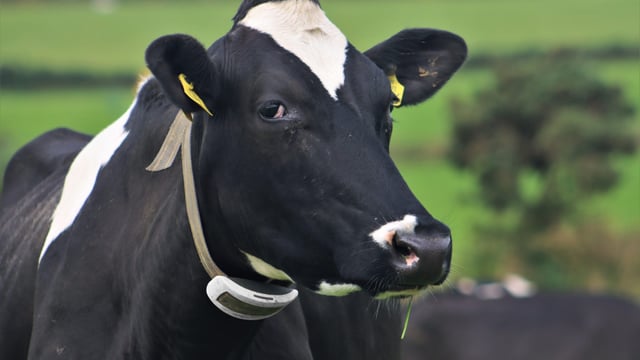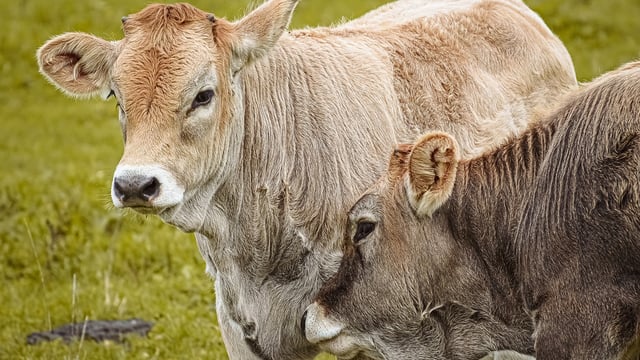Farmer 'safeguard' in new EU-Ukraine trade agreement
The EU and Ukraine have concluded talks on the review of the EU-Ukraine Deep and Comprehensive Free Trade Area (DCFTA), with a new "agreement in principle" to include a "safeguard" to protect EU farmers.
The agreement in principle on the review of trade liberalisation under the EU-Ukraine Association Agreement "marks a new phase in establishing a long-term, predictable, and reciprocal framework within the broader context of Ukraine's accession process", the commission said.
The agreement serves to solidify tariff and trade liberalisation with Ukraine; since the war with Russia started in February 2022, trade with Ukraine has been largely based on ad hoc 'autonomous trade measures' (ATMs) that were renewed a number of times, until they expired on June 5 this year.
The European Commission said the agreement, announced today (Monday, June 30), fully takes into account the sensitivity of certain agricultural sectors, raised by EU member states and farmers.
Farmer representatives in the EU have long expressed concerns about the trade relationship between the EU and Ukraine since Russia's invasion of that country in early 2022.
Farmers fear that increasing imports of crops from Ukraine will - and already have - put downward pressure on prices received by farmers for those products. The EU poultry sector is under similar pressure from imports of poultry products and eggs.
President of the European Commission Ursula von der Leyen said that the agreement announced today means that the EU is "securing trade flows from Ukraine to Europe and global markets".
"At the same time, we continue to safeguard the interests of our farmers," President von der Leyen added.
The agreement is structured around three key pillars, according to the commission.
The first of these is a level-playing field, where new market access for Ukraine will be dependent on it gradually aligning its production standards to relevant EU production standards, such as animal welfare, use of pesticides, and veterinary medicines.
The second pilar is described as a "robust safeguard clause", which will allow both sides activate a safeguard mechanism enabling the adoption of appropriate measures in situations where imports may cause adverse effects to either party. For the EU, the assessment of a possible disturbance can be done at member state level.
The third pillar is described as "enhanced trade flows" which the commission says takes account of sensitivities of certain EU sectors. This means that the market access for Ukrainian products will vary, with "only modest increases" for the most sensitive items, including sugar, poultry, eggs, wheat, maize and honey.
Both sides will now begin their own legislative procedures to adopt this new agreement.
The changes agreed will allow Ukraine to maintain the level of exports of recent years for many products.
Reflecting the sensitivity of some agricultural sectors, more limited changes were made for cereals (in particular wheat and maize), sugar, honey, poultry meat, and eggs. No additional volumes were granted for other meats.
On the other hand, less sensitive products, such as fermented milk or grape juice, will be fully liberalised. All those products will also be covered by the new safeguard mechanism.
The new safeguard mechanism (which Ukraine can also use to protect its own agricultural sector) can be invoked if imports of a product covered by the additional concessions result in adverse effects to either party. For the EU, this includes the case of adverse effects in one or several member states.
Commenting on the agreement, European Commissioner for Agriculture Christophe Hansen said: "I want to be very clear on this. The additional market access granted is conditional on Ukraine's alignment to our production standards.
"Promoting a level playing field for EU farmers was clearly stated in the [EU] Vision for Agriculture and Food and we are delivering on this," Commission Hansen added.
The commissioner also said: "When negotiating a revised deal for our trade relations with Ukraine, our objectives were clear: keep standing with Ukraine, further align our production standards in view of their accession into the EU, and also have an efficient safeguard mechanism in place to protect our sensitive sectors.
"This balance that we achieved creates a stable and predictable setting to take our privileged trade relationship further while taking into account the concerns of our sensitive agri-food sectors. The concluded agreement is one very important step towards Ukraine’s entry in our single market and towards a level playing field for EU farmers," he commented.











